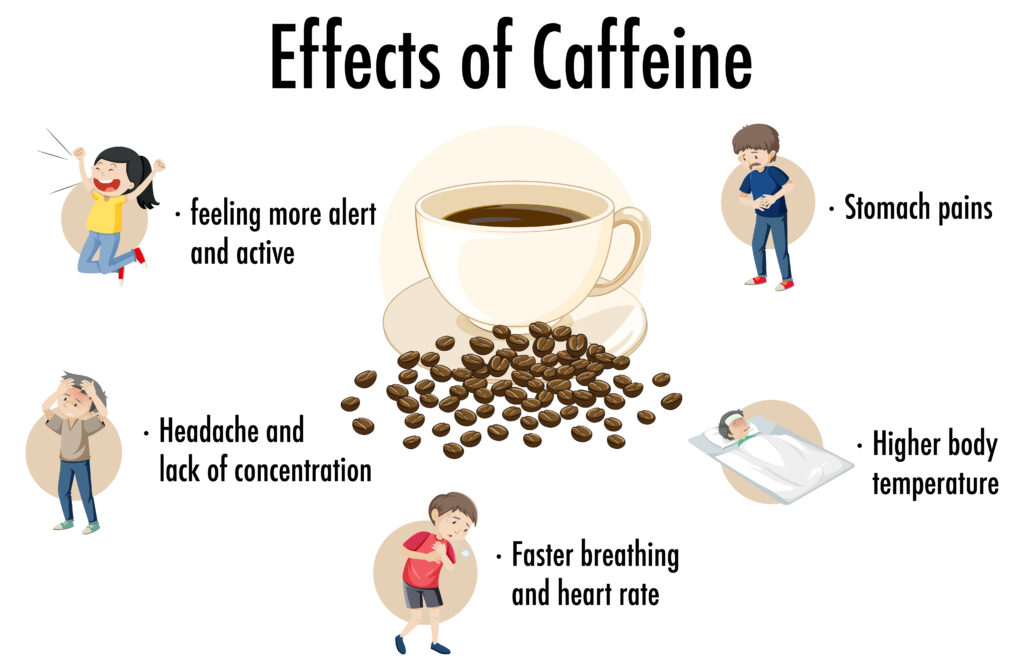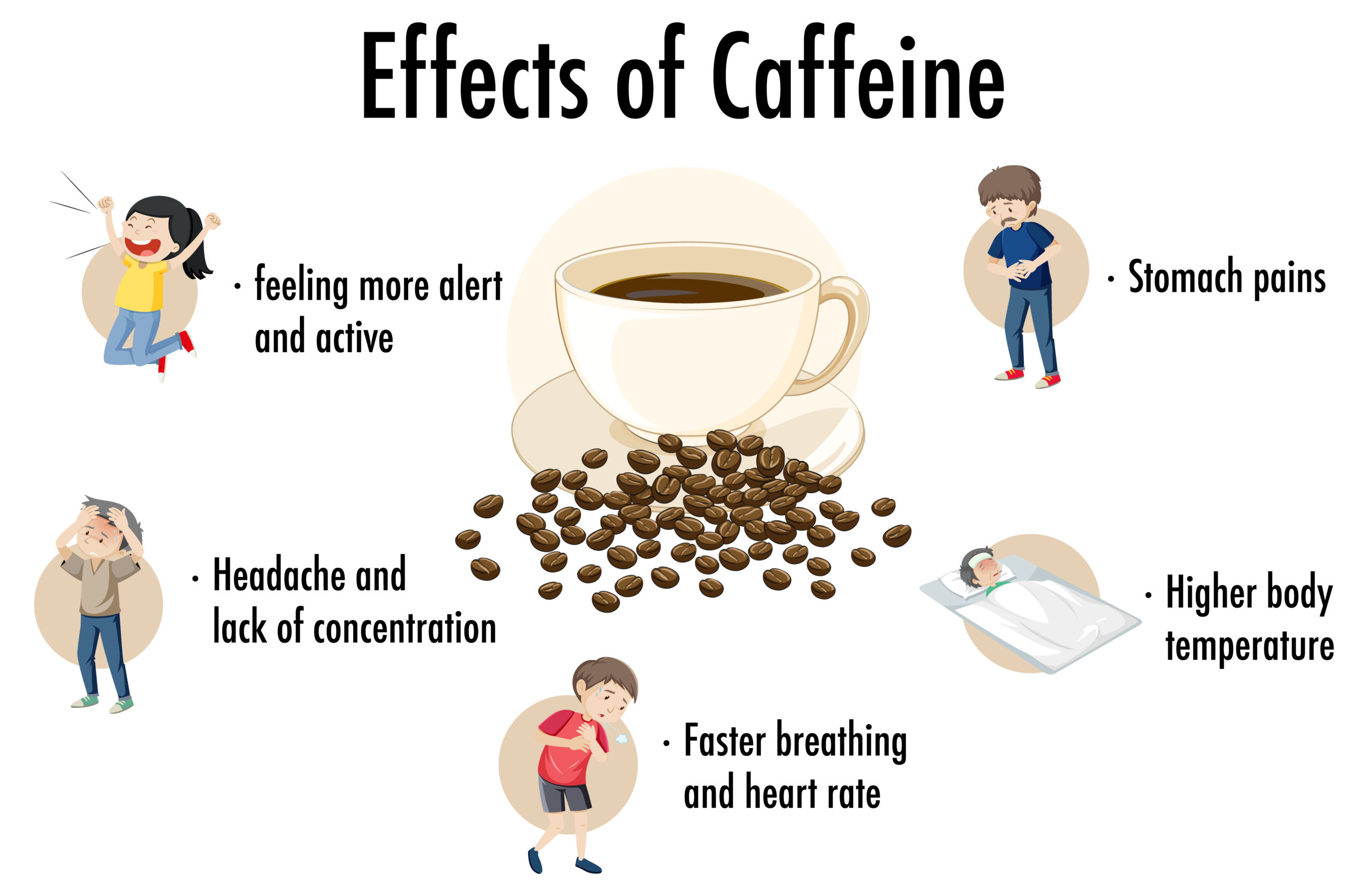
Does Dark Coffee Have More Caffeine? Unpacking the Caffeine Conundrum
The morning ritual. The afternoon pick-me-up. Coffee is a global phenomenon, a daily staple for millions. But beyond its rich aroma and satisfying taste lies a complex question that many coffee drinkers ponder: Does dark coffee have more caffeine than lighter roasts? The answer, as with many things coffee-related, is nuanced. This article delves into the science, the roasting process, and the caffeine content of various coffee beans to provide a comprehensive understanding of this often-debated topic. We’ll explore the factors at play and debunk some common misconceptions surrounding caffeine levels in different types of coffee.
The Roasting Process: A Transformation of Flavor and Composition
To understand the caffeine question, we first need to understand the roasting process. Coffee beans, in their raw form, are green and possess a grassy, somewhat unpleasant flavor. Roasting is the crucial step that transforms these green beans into the fragrant, flavorful beans we know and love. During roasting, the beans are subjected to high heat, triggering a series of chemical reactions that alter their composition.
The roasting process directly impacts the flavor profile of the coffee. Lighter roasts, which are roasted for a shorter duration, tend to retain more of the bean’s original characteristics and often exhibit brighter acidity and more delicate flavors. Darker roasts, on the other hand, are roasted for a longer time, resulting in a more intense, bold flavor with notes of chocolate, caramel, and often a smoky finish. The longer roasting time also affects the bean’s physical properties, including its density and size.
Caffeine and the Bean: Where Does It Start?
The caffeine content of a coffee bean is primarily determined by the coffee plant’s genetic makeup and the growing conditions. Arabica beans, the most popular variety, generally contain less caffeine than Robusta beans. The caffeine is naturally present in the bean and serves as a natural pesticide, protecting the plant from insects. The amount of caffeine present in the unroasted green bean is relatively consistent, regardless of the eventual roast level.
The Impact of Roasting on Caffeine Levels
Here’s where the confusion often arises. While the initial caffeine content of the green bean is relatively constant, the roasting process does influence the final caffeine concentration in a cup of coffee. The key factor is the physical changes that occur during roasting.
As beans roast, they lose moisture and expand in size. This expansion makes the beans less dense. Because darker roasts are roasted longer, they become less dense than lighter roasts. Therefore, a given volume (e.g., a tablespoon) of dark roast coffee beans will have slightly less mass than the same volume of lighter roast beans. Since caffeine is measured by mass, not volume, this difference in density can lead to the perception that dark roasts have less caffeine.
However, the difference is often marginal. A study by the National Coffee Association found that the actual caffeine difference between light and dark roasts is often negligible. The brewing method, the amount of coffee grounds used, and the water-to-coffee ratio play a more significant role in determining the final caffeine content of your brew. So, while the process of roasting does affect the mass of the beans, this does not necessarily mean that dark coffee has less caffeine, though this question is often posed: does dark coffee have more caffeine?
Brewing Methods and Their Influence on Caffeine
The brewing method significantly influences the amount of caffeine extracted from the coffee grounds. Different brewing methods utilize various water temperatures, contact times, and pressure levels, all of which affect the caffeine extraction process. Some of the most popular brewing methods are:
- Drip Coffee: A common method, drip coffee involves pouring hot water over coffee grounds, allowing gravity to extract the flavor and caffeine.
- French Press: This method involves steeping coffee grounds in hot water for several minutes before pressing the grounds to the bottom.
- Espresso: Espresso machines use high pressure to force hot water through finely ground coffee, resulting in a concentrated shot of coffee.
- Pour Over: Similar to drip coffee, pour-over brewing involves manually pouring hot water over coffee grounds, allowing for greater control over the brewing process.
Each method extracts caffeine differently, and the grind size, water temperature, and brewing time all play a role. Espresso, due to its concentrated nature and high pressure, often delivers a more potent caffeine kick per ounce than drip coffee. However, a large cup of drip coffee might contain more caffeine overall because of the larger volume.
Does Dark Coffee Have More Caffeine? The Bottom Line
So, does dark coffee have more caffeine? The answer is not a simple yes or no. While there is a slight decrease in mass due to the roasting process, which might lead to a negligible difference in caffeine content, the brewing method and the amount of coffee grounds used are generally more significant factors. In general, a dark roast might have slightly less caffeine by volume, but this difference is often not noticeable. The idea that dark coffee has more caffeine is a common misconception. If you’re particularly sensitive to caffeine, it is more important to focus on the brewing method and the amount of coffee you consume. If you are concerned about caffeine intake, it is important to consider all factors, including the roast level, brewing method, and the amount of coffee consumed. Therefore, the question of does dark coffee have more caffeine can be complex, but the roast level itself is not the primary determinant.
Beyond Caffeine: The Other Benefits of Coffee
Coffee is more than just a caffeine delivery system; it’s a complex beverage with a range of potential health benefits. Research suggests that moderate coffee consumption may be associated with a reduced risk of several diseases, including type 2 diabetes, Parkinson’s disease, and certain types of cancer. Coffee is also a rich source of antioxidants, which can help protect against cellular damage. It is important to note that individual responses to coffee can vary, and these potential benefits should be discussed with a healthcare professional.
Choosing Your Coffee: Beyond Caffeine Content
When choosing your coffee, the roast level is only one factor to consider. Flavor preferences, ethical sourcing, and brewing methods all play a crucial role. Explore different roasts to find the flavors you enjoy most. Consider the origin of the beans and the sustainability practices of the coffee producer. Experiment with different brewing methods to fine-tune your coffee experience.
The Future of Coffee Research
The world of coffee is constantly evolving, with new research emerging regularly. Scientists continue to investigate the health benefits of coffee, the impact of different brewing methods, and the effects of roasting on flavor and caffeine content. As we learn more, our understanding of coffee will continue to deepen, providing coffee lovers with even more insights and enjoyment. The question of does dark coffee have more caffeine will likely remain a topic of discussion, but the understanding of all coffee-related aspects will continue to grow.
Conclusion: Decoding the Caffeine Puzzle
The question of whether dark coffee has more caffeine is more complex than it initially appears. While the roasting process does influence the bean’s mass, the difference in caffeine content between light and dark roasts is often minimal. Brewing methods, the amount of coffee used, and individual sensitivity play a more significant role in determining the caffeine experience. Ultimately, enjoying coffee is about savoring the flavors, the aroma, and the ritual. Whether you prefer a light, bright roast or a bold, dark roast, the most important thing is to find a coffee that you enjoy and that fits your lifestyle. Understanding the science behind coffee, including the question of does dark coffee have more caffeine, can help you make informed choices and appreciate your daily cup even more.
[See also: The Best Coffee Grinders for Home Brewing] [See also: Understanding Coffee Bean Origins and Flavor Profiles] [See also: The Ultimate Guide to Brewing the Perfect Cup of Coffee]


